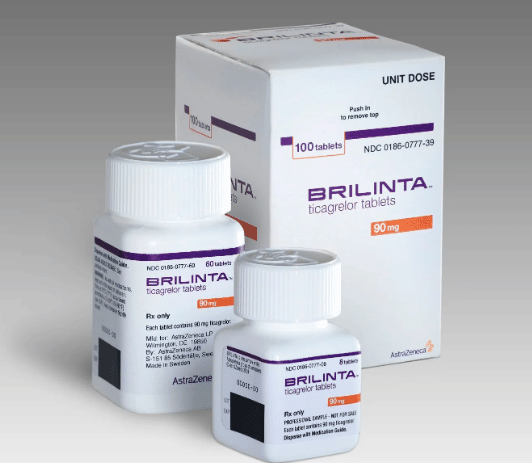To tackle this question, Brilinta is a commonly prescribed blood thinner aimed at preventing heart attacks or strokes in high-risk patients. However, it can have serious side effects, including severe bleeding. For those who have previously suffered a heart attack, Brilinta helps reduce the risk of another heart attack and associated mortality.
Is Brilinta a blood thinner?
Brilinta is a widely used antiplatelet medication. Platelets are blood cells that help form clots to stop bleeding. When clots form in blood vessels, they can obstruct blood flow, leading to a heart attack or stroke. Brilinta minimizes this risk by preventing platelets from clumping together to form hazardous blood clots.
Common side effects of Brilinta
Some typical side effects of Brilinta include:
- Bruising
- Increased bleeding
- Nosebleeds
- Headache
- Dizziness
- Cough
- Nausea
- Diarrhea
- Irregular heartbeat
- High blood pressure
- Back pain
- Low blood pressure
- Fatigue
- Chest pain
Serious side effects of Brilinta
Brilinta can also have serious adverse effects, including:
- Allergic hypersensitivity reactions
- Severe bleeding
- Bradyarrhythmia (slow heart rate)
- Atrioventricular block (impaired electrical conduction between the heart’s chambers)
- Thrombotic thrombocytopenic purpura (a potentially fatal condition with blood clots in small vessels throughout the body)
- Central sleep apnea (neurological pauses in breathing during sleep)
Long-term effects of Brilinta
The long-term effects of Brilinta require further research. Though individuals taking Brilinta with aspirin showed higher bleeding rates, there was no significant difference in risks of fatal bleeding, cerebral hemorrhage, or all-cause mortality compared to those taking aspirin alone.
How long do the side effects of Brilinta last?
Common side effects like dyspnea and diarrhea should diminish after stopping Brilinta. Elevated serum creatinine levels may also decline. However, bleeding risks could persist post-discontinuation.
Serious side effects, such as allergic reactions, may continue even after stopping the medication and require immediate medical attention.
Brilinta drug interactions
Brilinta interacts with numerous medications. It is essential to discuss all prescriptions, over-the-counter drugs, and dietary supplements with a healthcare provider.
Medications that can interact with Brilinta include:
- Anticoagulants like warfarin
- Antiplatelet agents such as Plavix
- Drugs or foods affecting p-glycoprotein or CYP3A4 enzymes, including grapefruit, ritonavir, atazanavir, digoxin, carbamazepine, phenytoin, phenobarbital, simvastatin, lovastatin, ketoconazole, itraconazole, and rifampin
- Drugs causing bradycardia or AV block
- Drugs delaying gastric (stomach) emptying
